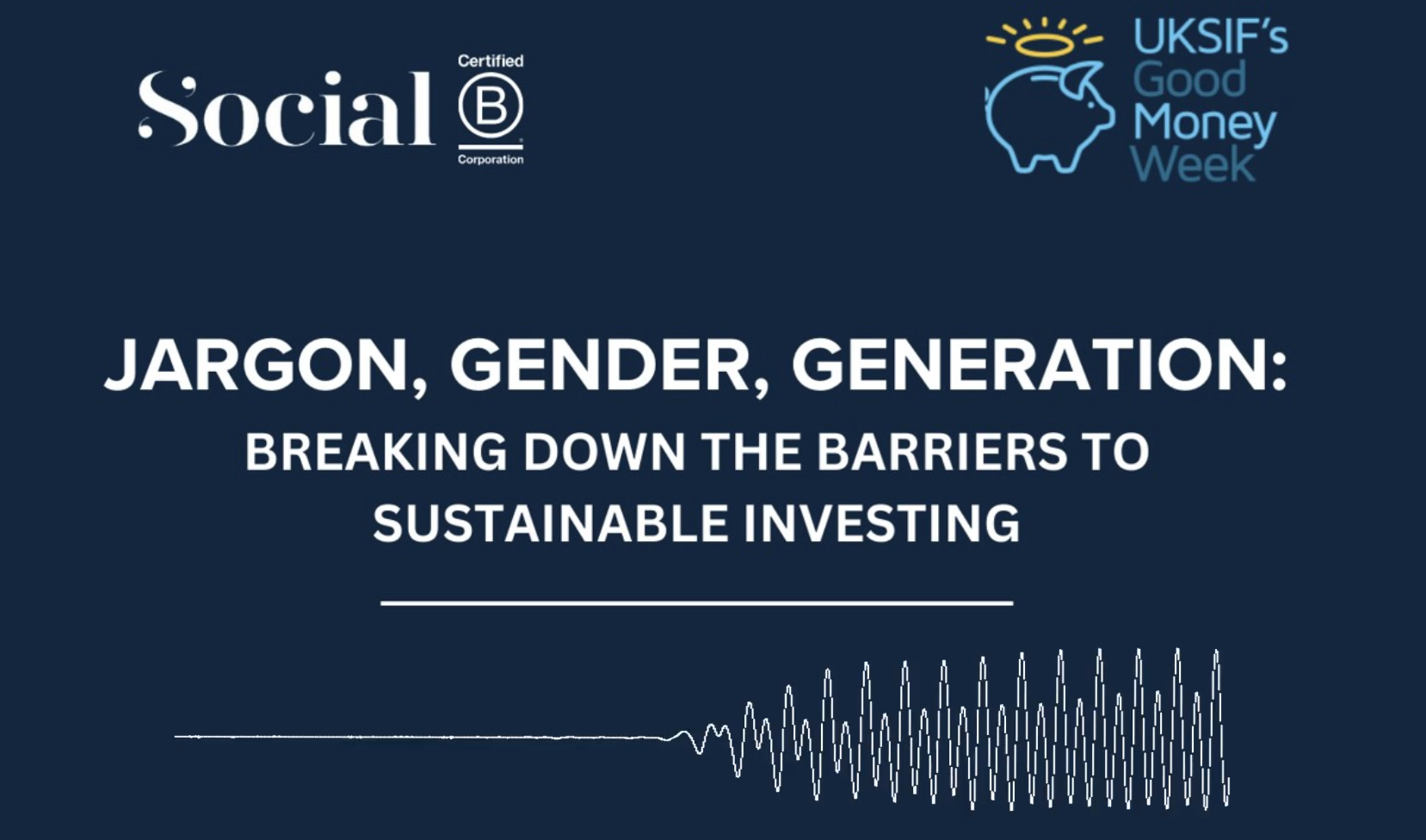As part of UK Sustainable Investment and Finance Association’s (UKSIF) Good Money Week in October, Social Invest ran a special webinar called ‘Jargon, gender, generation: breaking down the barriers to sustainable investing.’ Which you can listen to here.
The session included a lively discussion on inequities within the investment industry and how to address them. Speakers in session included:
- Madison Reamsbottom, Head of Membership, UKSIF
- Vibeka Mair, Senior Reporter, ESG Investor
- Alina Khan, Reporter, International Adviser
- Matt Latham, Co-Founder, Circa5000
Below are some key talking points from the webinar:
Language is important
Speakers discussed the importance of language when it comes to investment. Alina gave an example of a recent report aiming to address the gender investing gap, but which she argued had embraced gender stereotypes in the process.
She said: “It’s a shame because the content of the report is brilliant and it’s doing a lot to push the conversation forward…but I think [the use of language] just undoes all of that brilliant work that is going into trying to get more women engaged in investing.”
Alina noted firms need to be conscious of the language they are using and ask themselves “are we being patronising?”
Gender, age and class investment gaps
There was a detailed discussion on the gender investment gap and how to address it but the conversation also highlighted issues around investment gaps based on age and class.
Madison said: “There is obviously a gender gap. And there is also, in my opinion, an age gap as well.” She explained that as people age, their earnings go up and are more able to make investments. This also means that younger generations, who might prefer more sustainable investment options are not as influential as they could be.
She also noted the disadvantages of coming at investment from a working class background. Madison offered a personal anecdote about growing up in a working class family and the lack of conversations her family had about investment and personal finances.
A lack of financial education
There was consensus across the panelists that knowledge of investment opportunities is undermined by a lack of education on the subject.
Matt said: “I think the main barrier we have is that people aren’t equipped with the knowledge to be able to understand what is the best thing for them to do for their own personal finance future.
“It’s a well-worn line, but there is no proper financial education in schools.”
Madison added that there can be a lack of understanding by the average worker that their pension is essentially an investment. She said: “They don’t know how to look at what it’s invested in, so there is just a lack of education.”
Vibeka also offered insight into the barriers preventing people from understanding their pensions. She recalled attempting to learn more about her pension holdings only to go round in circles to no avail, adding “ I do think the industry has a problem”.
Tackling jargon
The panelists discussed the evolution of ESG and the reputational challenges it has been facing over the last year.
Matt noted that more and more investors are wanting to invest in sustainable products, but this has raised issues around the validity of certain products.
Part of the issue, Vibeka suggested, is around jargon.
Vibeka said: “ESG is so jargon-filled, and I think it needs to be stripped away from any piece of communication to you clients – especially with ESG. That is why there are a lot of misleading communications around ESG funds. It should clearly state what you’re investing in and how it’s invested.”
Having an open dialogue
Madison summarised by saying that initiatives like Good Money Week help create dialogue around these important issues.
She said one of the most important things that can be done is “having an actual conversation, engage in dialogue, listen, feel empowered as retail investor to ask questions”.
She explains that there are no stupid questions and that individuals should not hesitate if they want to learn more about their investments and pensions.


